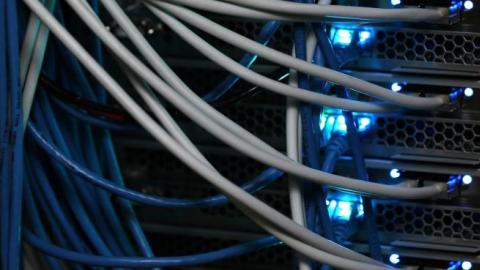12:01 a.m. Friday morning officially marked the end of the "permissionless" Internet. The curtain has come down on the greatest deregulatory success story of all time as a result of the Federal Communications Commission acting to regulate the Net like an old fashioned phone monopoly with 81-year-old laws -- starting on June 12, 2015. This is nothing more than command-and-control government utility regulation packaged as something new called "net neutrality."
Being able to read this column online shows that the Internet works just fine, just as it has since its inception. How well the Internet ecosphere will function in the future, however, will depend on whether Congress can undo this unnecessary and potentially innovation killing new regulatory regime.
In reaction the FCC's overreach, bipartisan spirit emerged earlier this year to rewrite our antiquated telecom laws, but it has stalled. Whether legislative momentum can be reignited will determine if the Internet ecosphere will evolve or stagnate.
Net regulation proponents originally sold their elixir as necessary to keep the Internet “open and free” by preventing Internet service providers (ISPs), like your cable or phone company, from blocking or slowing Web sites and apps.Over the past decade, however, activists massively expanded the goals of their movement to include economic regulation of the Internet sector. Undeterred by U.S. courts throwing out the previous two sets of FCC rules, the regulate-the-Net movement manufactured new pretexts and forged ahead to convince the White House and FCC to regulate the Net with a heavy-handed New Deal-era law, known as Title II. Its effect will be to deter investment and innovation through its strong regulatory powers.
Trouble is, nothing was ever broken that needed the "help" of Washington. Ample rules already existed that prevented anticompetitive conduct by ISPs. Consumers were protected all along. The free market was working.
In fact, the Internet ecosphere flourished under Clinton-era deregulation. The more the Net migrated further away from government influence, the more it blossomed.
After it was spun off from government overseers, it sprouted from a mere 88,000 users in the late 1980s, to more than 3.2 billion users today, including 2 billion users in developing nations. But rather than rely on existing law, the FCC forged ahead this year in the largest government intervention into the Internet's affairs in American history, equating the dynamic 21st century Internet to the telephone system of 1934.
History has taught us time and again that utility-style regulation raises costs to consumers, reduces investment and innovation, and creates uncertainty due to the politics-driven nature of "mother may I innovate" government mandates. Regulation doesn't shrink; it grows.
As of Friday morning, the Internet (networks, apps, content and the emerging Internet of Everything) is stuck in this quagmire. Realizing the radical consequences of imposing utility-style regulation on the Net may be why senior executives from net neutrality supporters Netflix and Google distanced themselves from the FCC's move -- unhelpfully, after-the-fact.
So what can be done? Congress should jump start the bipartisan spirit that shaped Internet policy since its inception. Draft bills have already been written and the potential for a deal exists. The regulate-the-Net crowd is starting to realize that the FCC order was so poorly reasoned that it is likely to be tossed out by the courts -- making a perfect hat trick of defeats for the FCC on this issue. And future FCCs can overturn this one.
In short, pro-regulation activists have something to lose. While proposed bills are on the table, they can't pass without Democrats' support. Democrats should join with Republicans and put an end to the uncertainty and litigation. Let's put this day behind us.



















